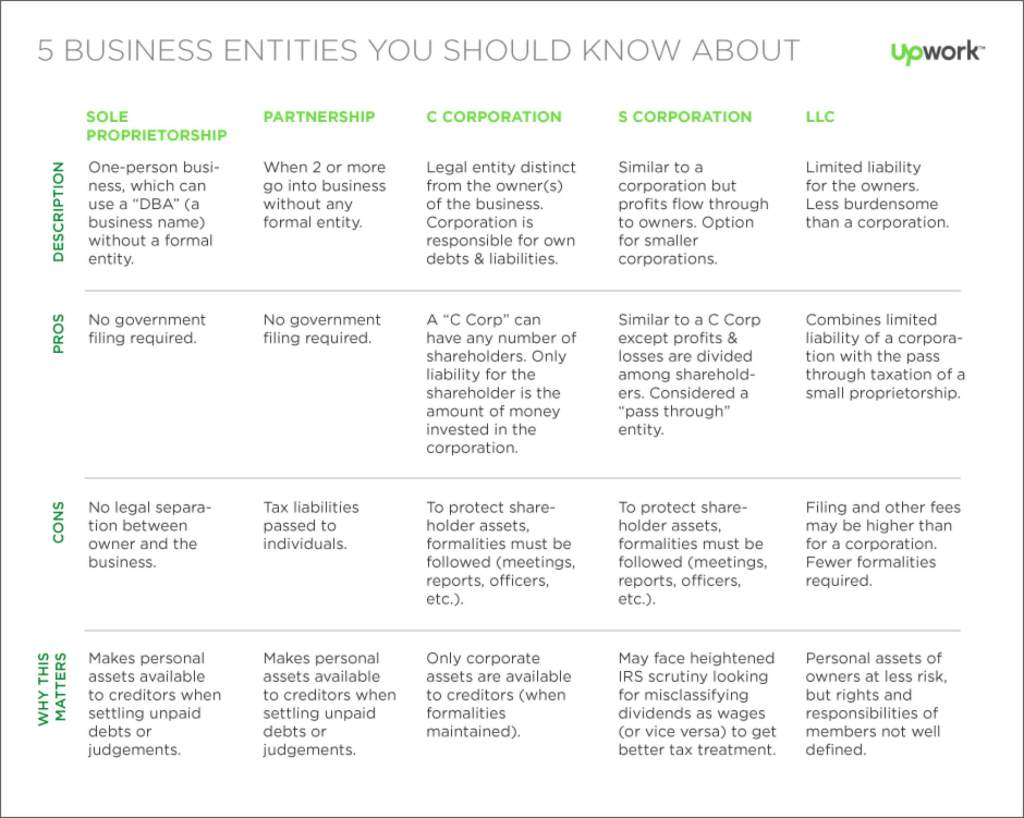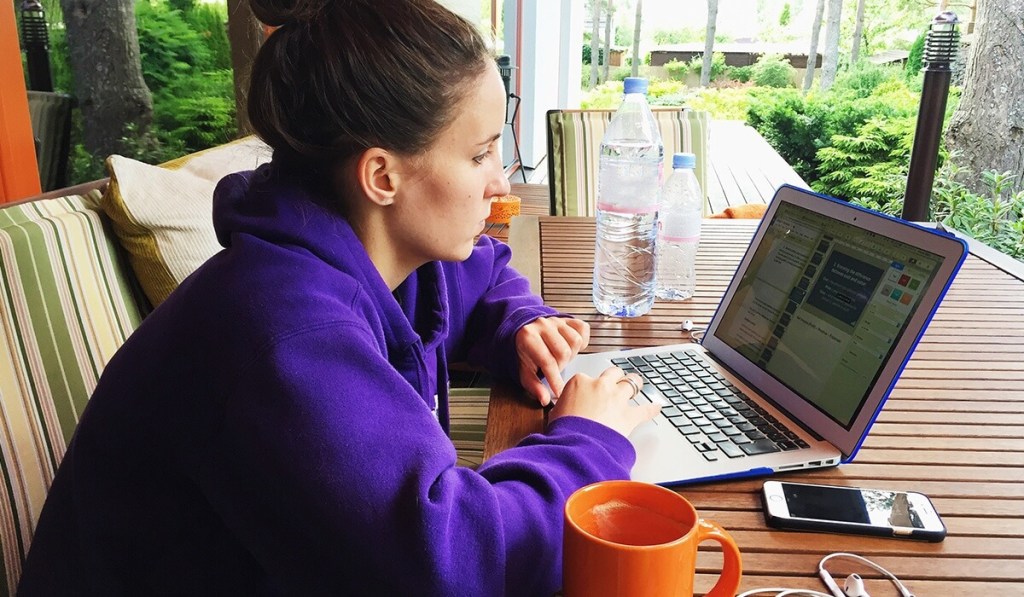Owning a home business is the American dream. Imagine waking up in the morning, pouring coffee, and walking right into your office.
Your commute is less than a minute, and you comfortably crank out work in cozy PJs and slippers. Plus, your home business gives you flexible hours, so you can pick up the kids from school.
Ahhh.
Now, can you operate a business from home? Yes.
Is it always a good idea? No.
And is it legal? Short answer… sometimes.
Starting a home business isn’t for everyone or for every industry. I’ll break down some of the legal and zoning questions you should ask—plus, personality and situational considerations. Before jumping into a new business, it’s wise to ask yourself if you’re taking the right approach and if it’s right for you.
4 Steps for Starting a Home Business – Legally!
Know your business type.
First, decide what type of business you want to start. Are you working on your own, like a freelance writer or graphic designer? If so, you’ll be a sole proprietor. Do you have a partner? Are you creating a nonprofit? Or will you be hiring several employees and consider yourself a corporation (Inc) or a limited liability company (LLC)?
If you’re going the corporation or LLC route, you might want to hire a business lawyer and accountant to get you through paperwork and fees. They’ll also help you understand the tax differences. For a corporation, you’ll need to appoint directors, write corporate bylaws, and draft a shareholders’ agreement.
This chart from Upwork breaks down the differences, and pros and cons of each:

Source: Upwork
Register your business name.
One day, I got creative and gave myself a business name, EST Creative. This was fun until clients started writing checks to my business name… checks I couldn’t cash without a business account and DBA.
Oops.
If you’re a sole proprietor or in a partnership, and you want a business name other than your own, you need to fill out paperwork for a DBA (Doing Business As). Make sure your business name is unique, memorable, and describes your product or service. Then go to your state, county, or town clerk to register. It’s an easy process and took about 20 minutes.
If you’re a corporation or LLC, you’ll follow a different process, of course. But, your accountant or business lawyer can walk you through the paperwork and process.
Pay attention to zoning laws.
Owning a home business sounds perfect until a frustrated neighbor complains to the town about added traffic or noise from your business. Or, you proudly put up a sign in your yard, and town officials call you out on zoning laws.
It pays to check zoning laws first. Visit your local government building and ask for copies of ordinances for “home occupations.” If you’re a renter, check your lease. If you’re part of a condo association, look into the association’s restrictions. Sometimes, you can find this information online, but I’ve found it’s quickest to ask in person.
If your city or town doesn’t allow home businesses in your zone, you can fight this with a variance. But, be warned—this process can be time-consuming, frustrating, and even costly. Consider if it’s worth it or if you should take your business elsewhere. And, even if you’re granted a variance, it can still get taken away in the future.
If your condo or rental property has restrictions on businesses, sometimes you can ask for an exception. Be prepared to explain how your business won’t disturb the condo community or rental property. You can ask neighbors to write letters for you, saying they approve of your business venture.
Sound complicated? It can be.
That’s why many freelancers keep their home businesses under the radar. But, ultimately, taking the risk is up to you. If a neighbor complains, you might get your business shut down. Either way, it’s worth investigating zoning laws ahead of time to know what you’re up against.
Decide if it’s right for you!
Now that you’re through legalities and zoning considerations, you need to decide if a home business is right for you and your family. For me, it is. I’m a freelance writer, wife, and mom. Even though my husband works at home, we have two separate offices on different floors. And, I have childcare, so I can truly focus on my work. My business allows me to do the work I love and have a flexible schedule for my family.
To handle a sole proprietorship and working alone, I’ve built a community of friends that I see on a regular basis. After all, working at home can get lonely. I also work regular business hours, usually 9 to 5, and shut the door when I’m writing. It’s good for my clients, and it’s good for me.
Before you start your business, ask yourself if you have the right location, schedule, and personality to handle it. Drill yourself with questions, like:
- Do you have dedicated space in your home, preferably with a door?
- What will your hours be?
- Are you extroverted or introverted?
- Do you need space for a team?
- Do you get distracted easily?
- Does your business require equipment? Where will it go?
- How loud is your business? Will it bring traffic? Require more parking?
- How often will you have client meetings? Where?
Even if the stars don’t align, you can make changes to launch a home business. If location is an issue try:
- Converting a large walk-in closet with a door into an office.
- Refinish your basement.
- Clean out a guest bedroom to use as an office.
- Convert your garage (Hey, Steve Jobs started Apple in a garage!)
If you’re an extrovert, like me, and concerned about needing human interaction, see friends and family before and after work. I go on walks with other moms, run errands with friends, and watch my husband’s softball games. I also visit my clients whenever possible, and schedule lunches and coffee breaks with friends.
The good news is 69% of entrepreneurs in the U.S. start their businesses at home. Many people are doing it—and experiencing success. Despite the legalities and other considerations, when there’s a will, there’s a way.
And if all else fails, you can always rent space or move your business elsewhere.
Get Insured in Under 10 Minutes
Get an affordable & customized policy in just minutes. So you can get back to what matters: Your business.
